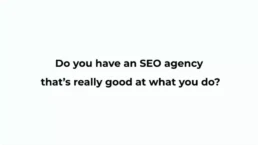by Venchito Tampon Jr | Last Updated on July 1, 2023
As someone who has been in the digital marketing industry for a while, you may have come across the terms ‘content marketing’ and ‘digital marketing’ being used interchangeably.
However, these two concepts are not one and the same. They are quite different from each other, with content marketing forming a part of digital marketing.
In this article, we will discuss the key differences between content marketing and digital marketing so that you can better understand the two concepts.
Let’s dig in…
What’s the difference between content marketing and digital marketing?
Definition of Content Marketing
According to Content Marketing Institute, Content marketing is a strategic marketing approach that is focused on creating and distributing valuable, relevant, and consistent content to attract and retain a clearly defined audience — with the ultimate goal of driving profitable customer action.
In other words, content marketing is about creating informative, entertaining, or inspiring pieces of content (e.g., blog posts, infographics, videos, etc.) that help your target audience somehow.
Content marketing aims to build a relationship with your audience so they can eventually become your customers or clients.
Content marketing is important in the customer journey as it helps educate your audience about your product or service, build trust, and establish authority. That’s why your content must align with your buyer journey stages.
How Content Marketing is Used in Different Buyer Stages:
Awareness Stage: Top-of-the-funnel content that makes your target audience aware of their problem or need.
Content marketing is used in the awareness stage to attract attention and educate people about the existence of a problem or a need that they may have.
The goal here is to get your target audience to realize that they have a problem or need that your product or service can help them with.
For example, if you’re selling acne treatment products, your content marketing strategy in the awareness stage should be focused on creating blog posts, infographics, or videos about acne and its causes.
The aim is to get people searching for information about acne to find your content so that you can introduce them to your product.
Consideration Stage: Middle-of-the-funnel content that helps your target audience compare different solutions and make a decision.
Content marketing is used in the consideration stage to help people aware of their problem or need to compare different solutions and decide.
The goal is to get your target audience to shortlist your product or service as a solution to their problem or need.
For example, if you’re selling acne treatment products, your content marketing strategy in the consideration stage should be focused on creating blog posts, infographics, or videos that compare your product with other acne treatments in the market.
The aim is to get people considering different acne treatments to find your content so that you can convince them to try your product.
Decision Stage: Bottom-of-the-funnel content that helps your target audience make a purchasing decision.
Content marketing is used in the decision stage to help people who are considering your product or service make a purchasing decision.
The goal is to get your target audience to buy your product or service.
For example, if you’re selling acne treatment products, your content marketing strategy in the decision stage should be focused on creating blog posts, infographics, or videos that highlight the features and benefits of your product.
The aim is to get people considering your product to find your content so that you can convince them to buy it.
To make an impact, your content marketing strategy should focus on creating informative, entertaining, or inspiring pieces of content that help your target audience somehow.
5 Advantages of Content Marketing
According to Hubspot, in 2022, a whopping 90% of marketers plan to continue spending the same amount in the channel as they are now. That being said, it’s evident that many businesses see the advantages of content marketing and how it can help them reach their goals.
Let’s take a look at some of the benefits of content marketing:
1. Helps you build trust and establish authority.
One of the main advantages of content marketing is that it helps you build trust and establish authority with your target audience.
When you create informative and helpful pieces of content, people will start seeing you as an industry expert. As a result, they will be more likely to trust and do business with you.
2. Helps you generate leads.
Another advantage of content marketing is that it can help you generate leads.
When you create quality content, people will be more likely to visit your website and give you their contact information.
3. Helps you build relationships.
In addition to generating leads, content marketing can also help you build relationships with your target audience.
People will see you as a valuable resource when you create helpful and informative content. As a result, they will be more likely to keep returning to your website and doing business with you.
4. Helps you save money.
Content marketing can also help you save money.
Compared to other marketing channels, content marketing is relatively inexpensive. You can even do it yourself if you have the time and resources.
5. Helps you reach your target audience.
Finally, content marketing can help you reach your target audience.
When you create quality content, it will be shared by people interested in it. As a result, you can reach more people than you would with other marketing channels.
Definition of Digital Marketing
Digital marketing is an umbrella term that covers all marketing efforts that use an electronic device or the internet.
“Businesses leverage digital channels such as search engines, social media, email, and their websites to connect with current and prospective customers.” – Hubspot
With how accessible the internet is today, would you believe me if I told you the number of people who go online every day is still increasing?
Digital marketing includes a wide range of marketing activities, such as:
- Search engine optimization (SEO)
- Search engine marketing (SEM)
- Content marketing
- Social media marketing (Facebook, Twitter, LinkedIn, etc.)
- Email marketing
- Mobile marketing
- And more!
Digital marketing is important because it helps businesses reach their target audiences where they are most likely to be found — online.
5 Advantages of Digital Marketing
According to Wordstream, the worldwide digital advertising and marketing market was expected to be $350 billion in 2020, while it will rise to $786.2 billion by 2026.
Seeing just how vast the digital marketing industry is, it’s no surprise that digital marketing has many advantages. Here are some of the most notable ones:
1. Digital marketing is more cost effective than traditional marketing.
As I noted earlier, one of the biggest advantages of digital marketing is that it’s more cost effective than traditional marketing.
With traditional marketing, businesses have to spend money on things like print ads, radio ads, TV ads, and events.
With digital marketing, businesses can reach their target audiences at a much lower cost. Many digital marketing activities are free or only cost a small amount.
2. Digital marketing is more targeted than traditional marketing.
Another advantage of digital marketing is that it’s more targeted than traditional marketing.
With traditional marketing, businesses typically advertise to a large audience in the hope that they will reach their target market.
With digital marketing, businesses can use data to show ads to people more likely to be interested in them. This allows businesses to save money and reach their target audiences more effectively.
3. Digital marketing is more engaging than traditional marketing.
Digital marketing is also more engaging than traditional marketing.
With traditional marketing, businesses typically rely on ads to reach their target audiences.
With digital marketing, businesses can use content to reach their target audiences. Content is more likely to engage people than ads, so it’s a more effective way to reach your target market.
4. Digital marketing is more measurable than traditional marketing.
Another advantage of digital marketing is that it’s more measurable than traditional marketing.
With traditional marketing, businesses typically rely on gut feeling to make decisions.
With digital marketing, businesses can track data and use it to make informed decisions. This allows businesses to save money and make better decisions about their marketing efforts.
5. Digital marketing is more flexible than traditional marketing.
Finally, digital marketing is more flexible than traditional marketing.
With traditional marketing, businesses typically commit to a certain amount of time or money before seeing results.
With digital marketing, businesses can start small and scale up as they see results. This allows businesses to save money and be more flexible in marketing efforts.
Digital marketing is a powerful tool to help businesses reach their target audiences. Now is the best time to start if you’re not using digital marketing.
In a nutshell, both content marketing and digital marketing are two effective methods that complement each other to help businesses achieve their marketing goals. Start using them today and see how they can help your business grow!
The Author
Venchito Tampon Jr
Venchito Tampon is a Filipino Motivational Speaker, Corporate Trainer, and a Leadership Speaker in the Philippines. He is the CEO and Co-Founder of SharpRocket, a link building agency. With a decade of experience, Venchito has a proven track record of leading hundreds of successful SEO (link builidng) campaigns across competitive industries like finance, B2B, legal, and SaaS. His expert advice as a link building expert has been featured in renowned publications such as Semrush, Ahrefs, Huffington Post and Forbes. He is also an international SEO spoken and has delivered talks in SEO Zraz, Asia Pacific Affiliate Summit in Singapore, and Search Marketing Summit in Sydney, Australia. Check out his other businesses, Hills & Valleys Cafe, Blend N Sips and Saas Pursuit.
How our LINK BUILDING AGENCY builds 250 links/mo consistently using Predictable Link Building Methodology™…
- Using a SIMPLE and PROVEN system
- Using a SCALABLE strategy
- No private blog networks
- No creepy outreach emails

